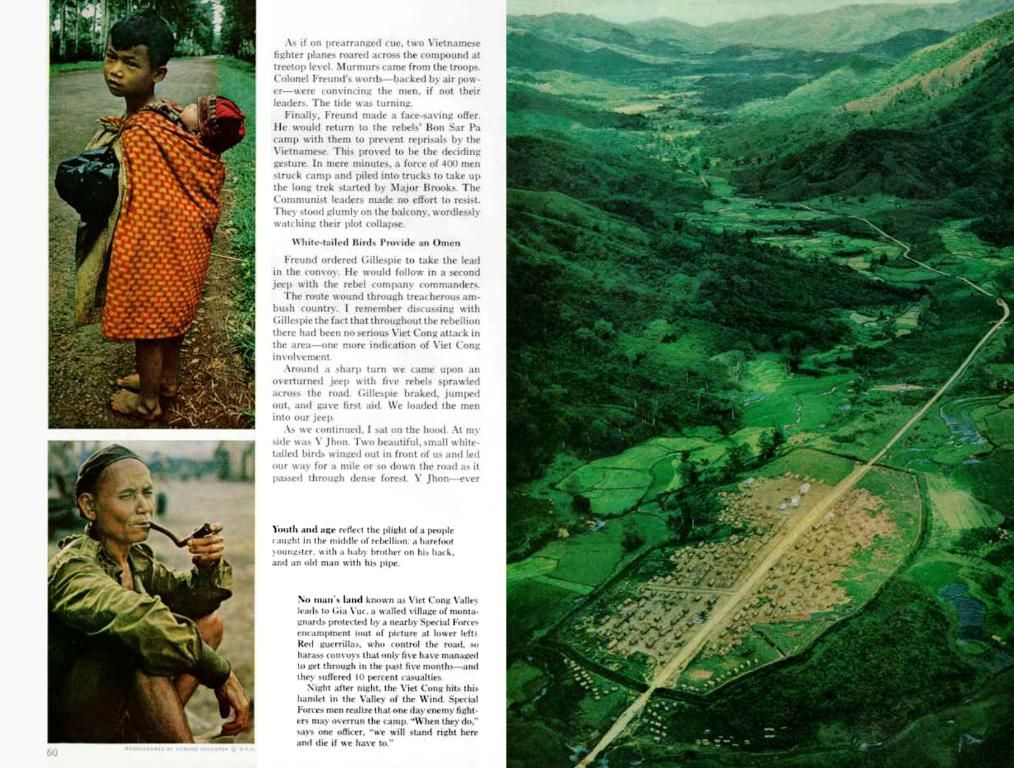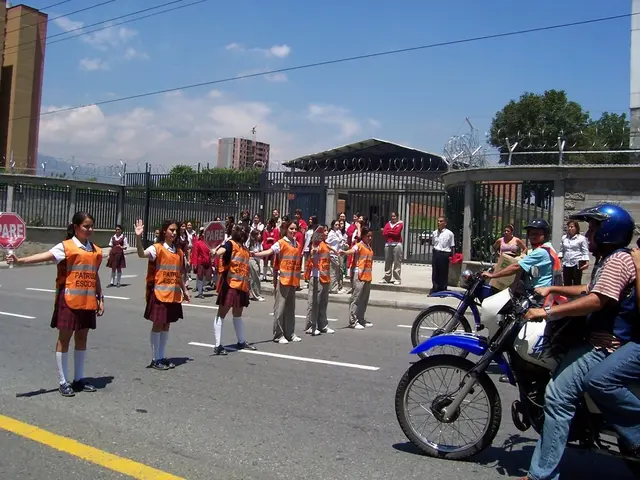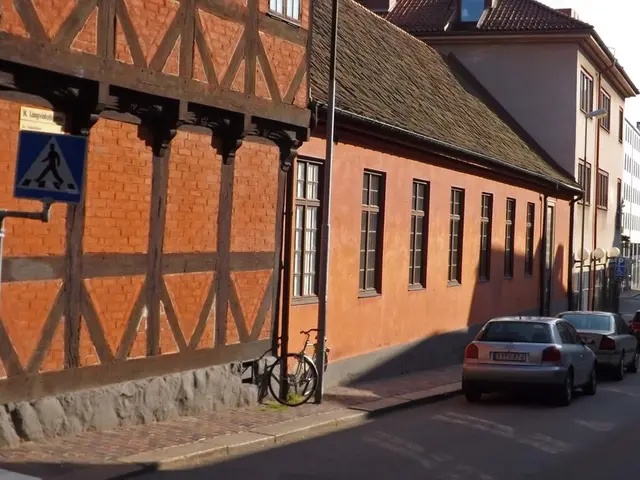The Lowdown on the Davao City Bypass Construction Project
Davao City Outer Ring Road Project Expected to Commence Operations by 2028
Get ready, Davaoeños! The Davao City Bypass Construction Project (DCBCP) is gearing up to hit the road by 2028, according to Engr. Joselito Reyes, project manager at DPWH-Davao. This baby is a behemoth, divided into six construction packages with varying start dates, each projected to take around three years.
"Each project's actual duration is three years. We're estimating the full shebang to be up and running by 2028, as each package is like a snowflake, different from the rest," said Reyes.
Construction teams are making steady progress; they've almost finished up Package I-1, which kicked off on December 21, 2020. Not far behind are Packages I-2 and I-3, started on December 10, 2024, and December 18, 2023, respectively. Packages II-1 and II-2 are underway, with II-3 still in the procurement phase for civil works.
The project's funds are coming from both domestic and international pockets, with Japan International Cooperation Agency (JICA) backing Packages I-1 to I-3 through loan agreements and the Philippine government financing Packages II-1 to II-3.
The pièce de résistance? The twin mountain tunnels under Package I-1. As of May 31, 2025, construction on those beauties is almost 60% done. The northbound tunnel's been smoothed to perfection, allowing for road paving and finishing works to commence. The southbound tunnel, however, is still in the midst of excavation, with approximately 117 meters to go before both ends connect, expected sometime in July or August of this year. The revised completion deadline for these bad boys is now set for May 30, 2026, with an operational date in late 2026 or early 2027.
When these tunnels open, they'll make history as the country's longest mountain road tunnels, each measuring a whopping 2.3 kilometers. Once completed, the DCBCP will span an impressive 45.5 kilometers, cutting travel time between Barangay Sirawan in Toril, Davao City, and Barangay J.P. Laurel in Panabo City from 1 hour and 11 minutes via the Maharlika Highway down to a speedy 49 minutes.
The question remains, will private vehicles be the only ones zipping through the DCBCP? DPWH hasn't made the call yet on whether buses, trucks, and public utility vehicles will be allowed.
In terms of safety, you can rest easy knowing that the Shimizu Corporation, the project's director, has designed the tunnels with seismic considerations in mind. Since they're nestled safely within a mountain, these tunnels should breeze through even the most tumultuous earthquakes, moving uniformly. Additionally, the tunnel route was carefully plotted during the design phase to stay well away from known active fault lines.
So buckle up and get ready for a faster, safer commute, Davao City!
Fact Check: As of May 31, 2025, the construction progress of the twin mountain tunnels under Package I-1 of the Davao City Bypass Construction Project has reached nearly 60% completion[1]. The revised completion deadline for the tunnels is now set for May 30, 2026[1][3]. The entire Davao City Bypass project is expected to be completed by 2028[1][3].
The government of Davao City is working with the Japan International Cooperation Agency (JICA) and the Philippine government to finance the Davao City Bypass Construction Project (DCBCP), which includes the construction of the country's longest mountain road tunnels, each measuring 2.3 kilometers. By 2028, transportation in Davao City is expected to be faster and safer, thanks to the DCBCP, with private vehicles potentially using the bypass. The Shimizu Corporation, the project's director, ensures that the tunnels have been designed with seismic considerations in mind for improved safety.








